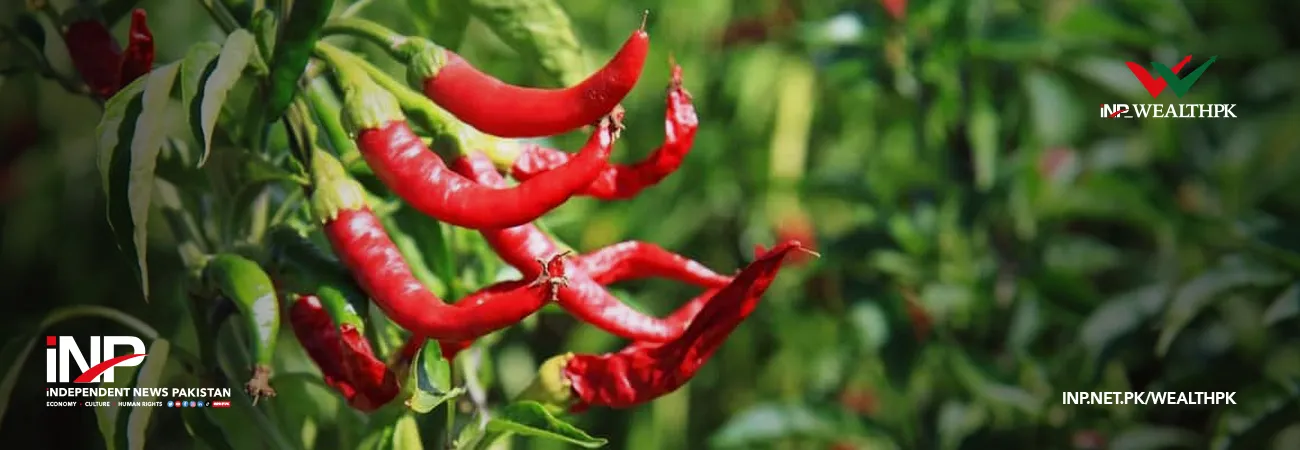INP-WealthPk
Ahmed Khan Malik
Lack of research and modern technology has lowered the output and quality of chili crops in Sindh, bringing fewer profits to the farmers, reports WealthPK. Sindh, particularly the Kunri district, is the leading hub of red chili production. Pakistan ranks fourth in the world for chili production, with 150,000 acres (60,700 hectares) of farms producing 143,000 tonnes annually. Sindh is a significant chili exporter, with the majority of exports shipped to nearby countries such as Iran and Afghanistan. Some consignments are also shipped to the Gulf countries. Talking to WealthPK, Zahid Meerani, Director of Sindh Agricultural Research Institute, said the profits of chili producers were below the average income internationally, adding that the government was taking steps to improve the structures, diversify the products and enhance value addition to fetch better prices.
He said the chili farmers were facing a number of problems, making it hard for the agriculture sector to grow. One of the major problems faced by them is the lack of access to the modern farming techniques and technology. Many farmers in Pakistan still rely on the traditional farming practices and methods, which lower the quality and yield of crops and reduce profitability. “This lack of access to modern technology makes it difficult for the farmers to efficiently manage the pest and disease attacks, which can have a significant impact on the crop yields. This issue can be resolved by providing proper training and education to the farmers as well as providing them with the financial assistance to purchase new equipment and technology,” he explained. Meerani pointed out that the lack of proper storage and transportation infrastructure was another problem faced by the chili growers.
Poor storage and transport infrastructure leads to post-harvest losses, reducing profitability. So, there is a need to invest in modern storage and transportation facilities and upgrade the existing ones, he added. “Without proper research and development, crop yields can be suboptimal and profitability can reduce. To tackle this issue, there is a need to invest in research and development to create new chili varieties that are more resistant to pests and diseases, have better yields, and are more suitable for different climates and soil types,” he said. “Another issue faced by the growers is limited access to credit and financing. Many farmers lack the collateral required to secure loans from formal financial institutions, making it difficult to invest and improve their crop yields. To resolve this problem, the government should assist the farmers with small loans and other financial services so that they can invest better in their crops,” he added.
Credit: INP-WealthPk













